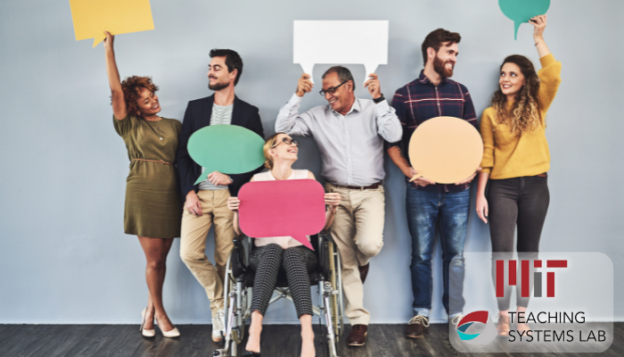Every day, teachers make thousands of decisions: what content to teach, what activities to assign, who to call on, how to respond to a student question, how to react to student behaviour. These day-to-day decisions can have an enormous effect on the lives of young people, for good and ill. They can open new doors or cause lasting harm; they can make students feel seen and valued, or dampen their interest in school. In Becoming a More Equitable Educator, we will investigate these interactions, rehearse responding to difficult scenarios, and develop a set of equity teaching mindsets and practices to support all of our learners, especially underserved students.
With colleagues from your school or organization and online learners around the world, you will participate in four cycles of inquiry, practice, and action, and then complete a final action project. In each cycle of inquiry, you will examine and re-examine dimensions of inequality through educator mindsets, imagine community change through documentary case studies, rehearse taking action in thorny situations through digital practice spaces, and begin to lead change through action-oriented assignments. Our early investigations will focus on relationships and interactions with individual students, and pan out to examine the effects of bias on classrooms, schools, and communities. As you complete activities with peers online, you will develop a rich set of resources and exercises to use with your students and colleagues in your local context.
At the end of the course, you will have a better understanding of yourself and your students, new resources to draw on for helping all students thrive, and a plan to work with your school community to advance the lifelong work of equitable teaching.
We believe that the most rich and rewarding experience in this course is to take it with colleagues, and we encourage you to reach out to a small group who might be interested in taking this course with you. These fellow-learners will understand your context, the students that are in your school, and the culture of the place that you’re working with. Even one or two peers can be the start of an equity change cohort in your school or organization.
What you’ll learn
Educators–from teachers to school leaders to paraprofessionals–will learn about:
- Educator Mindsets: For seeing bias and equity: Equity vs. Equality; Aware vs. Avoidant; Asset vs. Deficit; Context-Centered vs. Context-Neutral.
- Equity Teaching Practices: Teaching dispositions, judgments, and activities that help all students, especially underserved students, to thrive and feel valued.
- Levels of Change: Addressing inequality through work on the self, the classroom, the school, and society.
- Practice Spaces: Simulations for low-stakes practice of challenging decisions in teaching.
- Leading Change: Working with colleagues in the lifelong journey towards more equitable schools.
The course “Becoming a More Equitable Educator: Mindsets and Practices” was created by MIT Teaching Systems Lab and is licensed under CC BY 4.0.
Course Content
About Instructor
Ratings and Reviews





Thank you Lihle! We are so glad you found this course so helpful and are able to apply these sills and knowledge in your classroom!